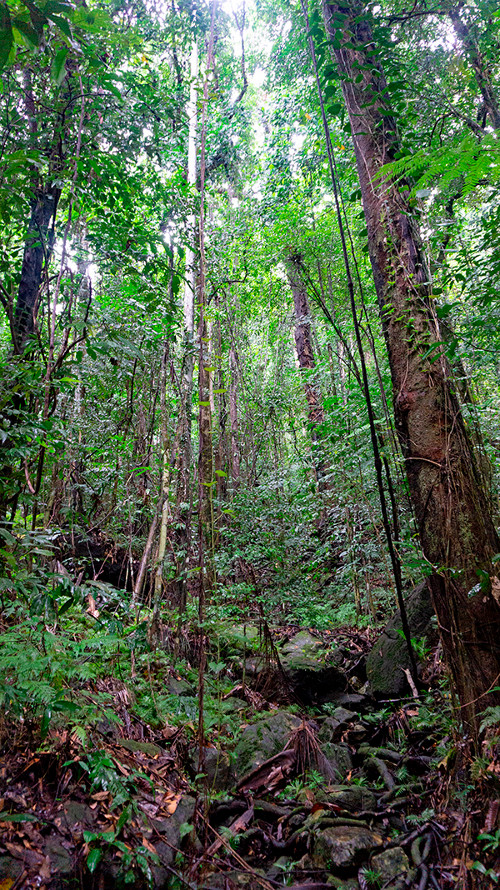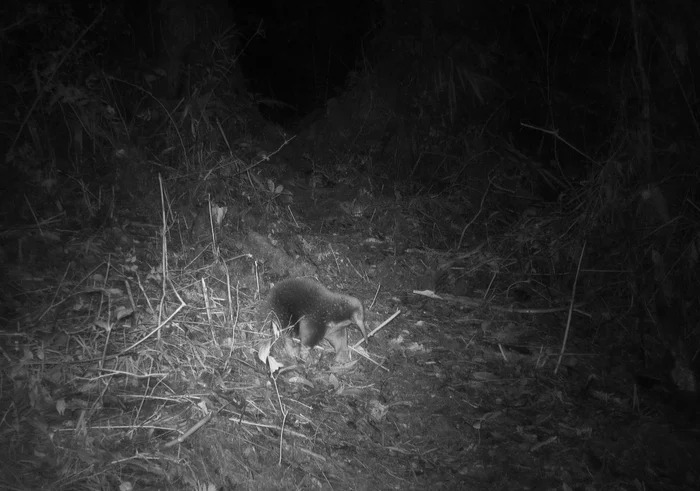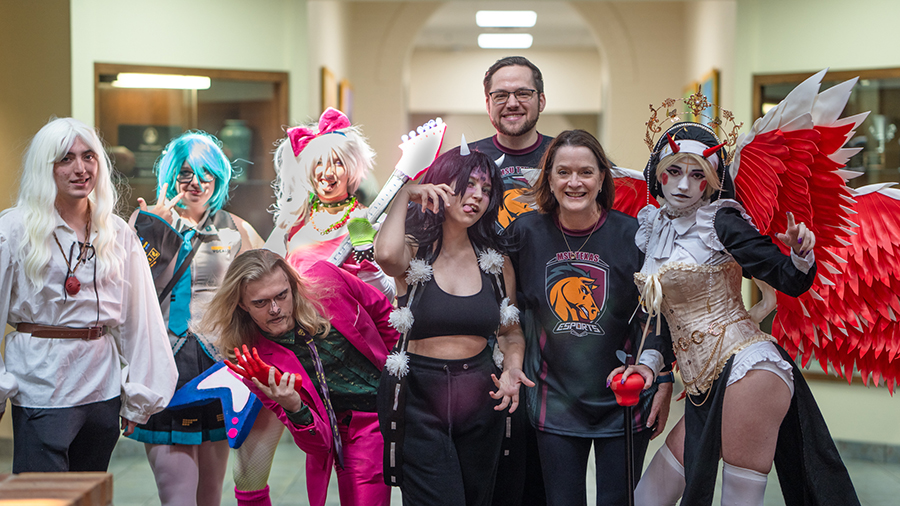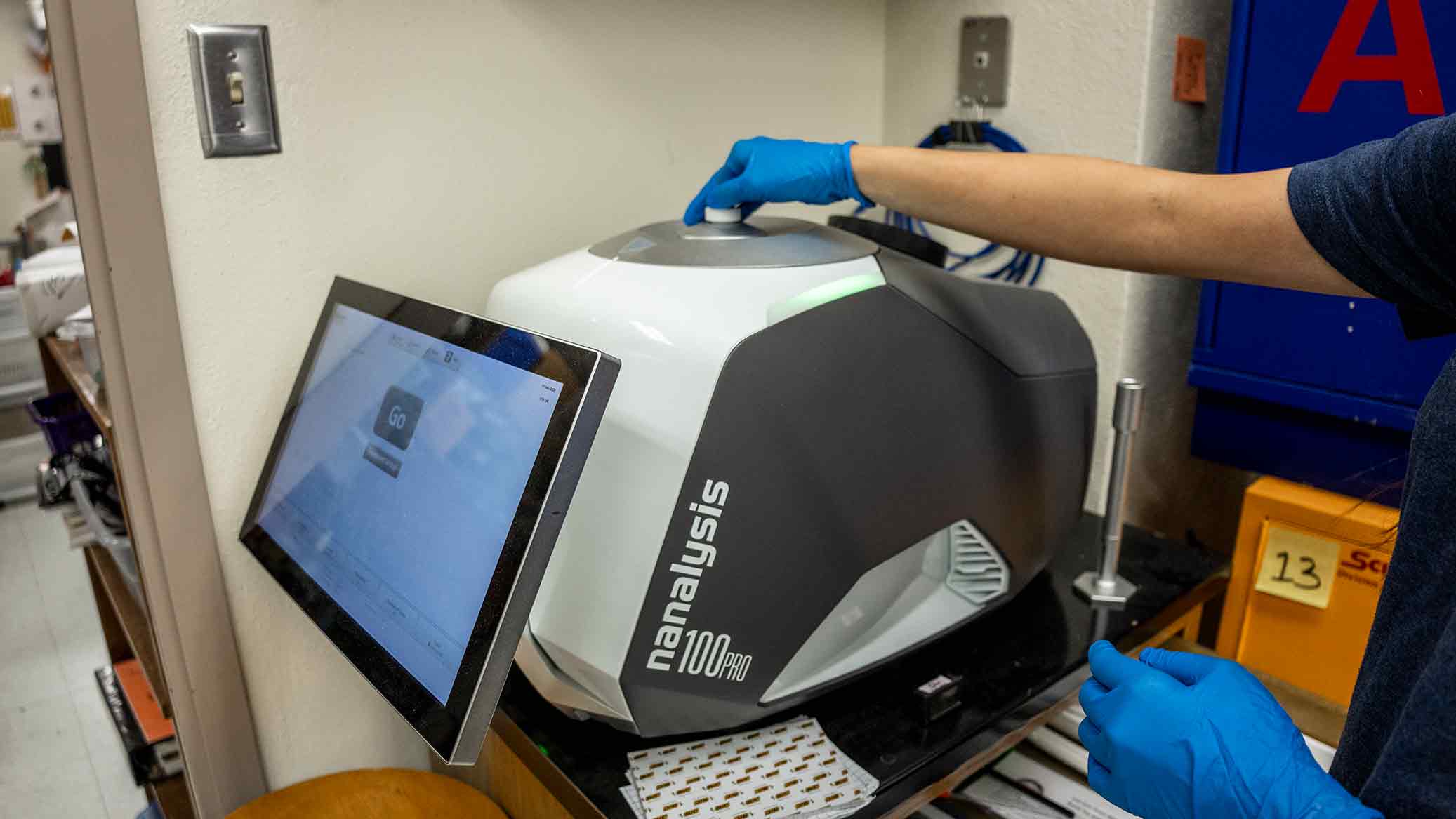MSU Texas alumnus on team that documented species thought extinct
The existence of the spiny, snouted Attenborough’s long-beaked echidna had not been definitively recorded since 1961 when the first scientific specimen was collected, and scientists weren’t sure it still existed. Last summer, in the rugged and remote Cyclops Mountains of Papua, Indonesia, the only place the species had been found, a team of researchers spent a month setting up cameras and searching for the mammal.
Near the end of the expedition, a camera caught the creature foraging for food, marking a monumental find. One of the researchers on the team was Andrew Tilker, a 2006 graduate of Midwestern State University. Tilker is Species Conservation Coordinator for Re:wild, a conservation organization that works around the world to protect endangered species and the places where they live.
“Documenting the echidna was a pretty big deal,” Tilker said. “Given the species’ restricted distribution, it was unknown if it still existed. With our camera-trapping results, we showed definitely that the species still exists. Then there is also the fact that being a spiny egg-laying mammal, it’s a pretty remarkable species.”
Attenborough's long-beaked echidna, named for the famed biologist David Attenborough, is one of only five living species of monotremes, a group of egg-laying mammals that includes the platypus.
Seeing the elusive critter on camera was a dream come true for a boy who says he has “vivid memories of endlessly bothering my parents to take me to the library for this or that book on rare and obscure animal species. I quickly became aware that many of these amazing animals were threatened with extinction.”
Even then, that boy knew he had an innate passion for biology and a curiosity about the animal kingdom. But passion needs direction and mentorship to develop, and Tilker said his professors at MSU Texas provided that guidance. “My experiences at Midwestern State University were particularly formative – learning from great biologists and naturalists like Drs. Norman Horner, Fred Stangl, and Bill Cook helped to set me on my current professional path.”
Horner was Dean of the College of Science and Mathematics when Tilker received his bachelor’s degree. “While all of my professors were outstanding, I would not be where I am today without the counseling, mentoring, and encouragement of Dr. Horner,” Tilker said. “He was one of my most influential mentors and over the years, has become a good friend.” Tilker said they email each other regularly and occasionally meet up for in-person coffee and conversation when Tilker is in the country. “I especially treasure our casual chats where we reminisce about the tropical ecology course that I joined him on in Ecuador, or I get to listen to stories of the previous generation of great naturalists/biologists at MSU such as Walter Dalquest.”
Horner said that it was gratifying for a college professor to see the successes of their students. “I knew Drew Tilker was a conscientious student who would have a rewarding career but he has far exceeded my expectations,” Horner said. “I think we will hear his name mentioned many times through his scientific endeavors and I am honored that he thinks I contributed to his success.”
Tilker describes his job as supporting species conservation globally for the species that need it most. “I am especially interested in the conservation of rare and threatened species, especially mammals, which are overlooked – those species that have slipped through the cracks but need the most help – such as the silver-backed chevrotain or the tamaraw,” he said.

The Cyclops Mountains in Papua, Indonesia. (Andrew Tilker)
In top feature photo, Andrew Tilker setting up camera trap on an expedition in Vietnam.

“To do this, I work with local conservation stakeholders – whether individuals, non-government organizations, or governments – to build conservation initiatives that have an on-the-ground impact for these species. That engagement can take many forms, from technical input to partnership building/coalition forming to political aspects.”
Re:wild maintains a list of the Top 25 Most Wanted Lost Species, and Attenborough’s echidna was one of the species that Re:wild put intensive search efforts into. “To date, we have found 13 of our previous Top 25 lost species – and we hope that many more are to come,” Tilker said. “The first step to protecting many of these species, and the habitats where they live, is to first show that they exist.”
Tilker graduated summa cum laude from MSU with a Bachelor of Science in Biology/Organismal. He was named Outstanding Biology Student in 2006 and was a member of Alpha Chi National College Honor Society. During his time at MSU Texas, Tilker also received President’s Distinguished Scholarships and President’s Excellence Scholarships. He was named a Fulbright Scholar for 2014-2015. He earned his doctorate at Berlin’s Leibniz Institute for Zoo and Wildlife Research, an interdisciplinary research institute focused on wildlife conservation.
After earning his doctorate, Tilker stayed in Berlin but may find himself in the United States or Southeast Asia, or anywhere in between at any time, and is thankful for technology that makes it easier to keep in touch with family, friends, and former professors. He is the son of Paula and Kristopher Tilker of Wichita Falls and is a 2002 graduate of Rider High School. He received a master’s degree from The University of Texas. Kris Tilker is a Professor of Legal Studies in the Dillard College of Business Administration at MSU Texas.
“I always had an idea that I wanted to go into something wildlife-related, and I wanted that work to (hopefully!) provide a positive impact on species that needed it,” he said. “I had no idea that it would take me to such far-flung parts of the world. But I think that is simply because it’s hard to imagine that the world is so vast when you are young.”
Tilker says that the future of biodiversity – especially in megadiverse areas like the tropics – will be in the hands of the next generation of conservation scientists. He and his colleagues try to incorporate mentorship and capacity building into all aspects of their work. Just as Tilker’s early passion for conservation needed focus and was guided by his mentors, he and his colleagues try to provide that mentorship for younger scientists. “That guidance, support, encouragement, and empowerment for the next wave of scientists is critical,” he said.

Attenborough's echidna caught on camera. (Expedition Cyclops)




